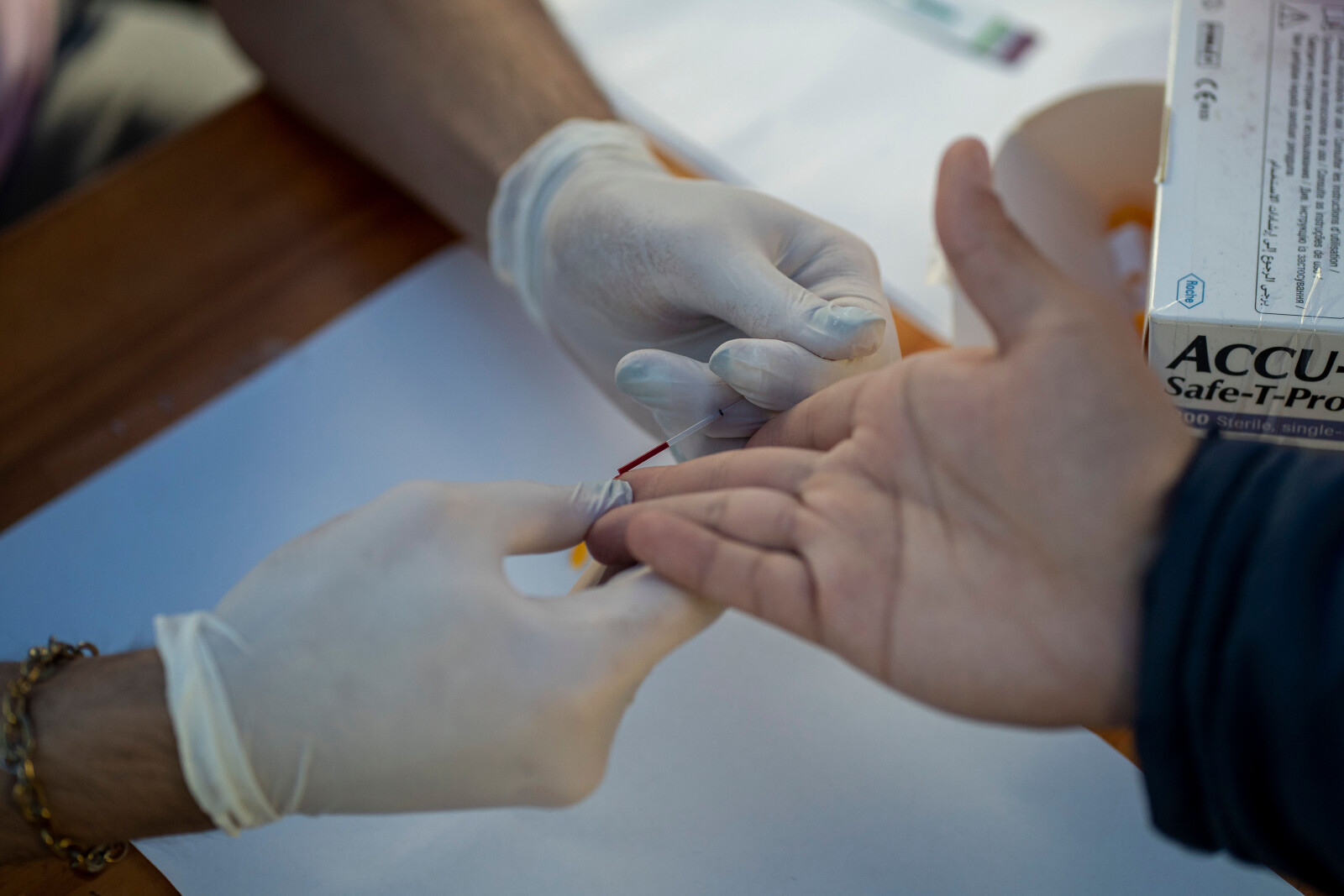New Hope for Childhood Cancer Treatment
This article investigates the advancements in pediatric oncology, offering new hope for childhood cancer treatment. It explores the range of innovative therapies, the crucial role of clinical trials in developing effective treatments, and the shift towards comprehensive care. The focus also extends to survivorship, emphasizing the importance of monitoring long-term health. This marks a step forward towards a future where a cancer diagnosis no longer spells the end of childhood.

Key Takeaways
- Childhood cancer is a significant health issue, with approximately 9,910 new cases expected to be diagnosed among children in the United States in 2023.
- Cancer death rates for children ages 0 to 14 have declined by 70 percent from 1970 through 2020, highlighting the progress made in treating childhood cancer.
- Treatment decisions for children with cancer involve discussions between pediatric oncology experts and parents, emphasizing the importance of a collaborative approach to care.
- Clinical trials play a vital role in identifying curative therapies for childhood cancers, and most progress in this area has been achieved through these research studies.
Understanding Childhood Cancer: An Overview
Where does our current understanding of childhood cancer stand, considering the drastic decline in mortality rates, the advancements in treatment methods, and the continuous effort to discover new curative therapies through clinical trials? Childhood cancer research has significantly evolved over the years, leading to a better understanding of the disease and subsequently, a decrease in mortality rates. Advancements in treatment methods, including surgery, chemotherapy, and targeted therapies, have improved survival rates and the quality of life for many children. Simultaneously, ongoing clinical trials are generating hope for future breakthroughs. However, the impact on families remains profound. The diagnosis of childhood cancer can impose emotional, financial, and social burdens on families, emphasizing the need for comprehensive support systems and resources.
The Science of Pediatric Oncology
Over the past several decades, the field of pediatric oncology has evolved significantly, with a multitude of advancements that have transformed the diagnosis, treatment, and prognosis of childhood cancers. These advancements in research have been instrumental in developing personalized medicine strategies that tailor treatments to each child's unique needs and disease characteristics. Genomic profiling of tumors, for instance, aids in identifying specific genetic mutations that drive cancer growth, thus providing targets for precision therapies. In addition, pediatric oncology research has led to improved supportive care measures, reducing treatment side effects and enhancing patients' quality of life. As research continues to advance, the hope is for further improvements in outcomes, reducing the burden of childhood cancer on patients and their families.
Exploring Different Treatment Options for Childhood Cancer
Navigating the landscape of childhood cancer treatment involves understanding a variety of methods, and this includes surgery, chemotherapy, radiation therapy, immunotherapy, and stem cell transplant. Emerging in this landscape are targeted therapies, which aim to block the growth of cancer cells by interfering with specific molecules needed for tumor growth and progression. These therapies help to reduce harm to healthy cells, leading to fewer side effects. Alongside these treatments, supportive care plays an integral role in childhood cancer management. It addresses the emotional, psychological, and physical distress caused by the disease and its treatment. It also helps manage symptoms, side effects, and improves the quality of life for the patient and their family. Both targeted therapies and supportive care are crucial elements in the array of childhood cancer treatment options.
The Importance and Role of Clinical Trials
Throughout the decades, clinical trials have played an indispensable role in the evolution and improvement of childhood cancer treatment strategies. These trials have allowed for the development and refinement of innovative therapies, enhancing survival rates and quality of life for pediatric patients. The benefits of participation are multifold, as they offer access to cutting-edge treatments and contribute to the broader scientific understanding of these malignancies. However, ethical considerations must always be paramount. Informed consent, understanding of potential risks and benefits, and the child's assent are crucial components to ensure the integrity of the trial. These safeguards, in tandem with a dedicated, multi-disciplinary team, can ensure that clinical trials continue to provide hope and improved outcomes for children battling cancer.
Innovations in Childhood Cancer Treatment
The advent of groundbreaking innovations has significantly transformed the landscape of childhood cancer treatment, instilling a renewed sense of hope in patients and their families. Advancements in research have propelled the development of novel approaches such as targeted therapies. These innovations precisely identify and attack cancer cells, minimizing harm to healthy tissues. Genomic testing, for instance, has enabled personalized treatment plans based on the genetic makeup of a child's tumor. Immunotherapy, another cutting-edge innovation, harnesses the power of the body's immune system to combat cancer. The progress is promising, with new therapies demonstrating increased efficacy and reduced side effects. Ultimately, these developments offer a brighter future for children battling cancer, affirming the power of continuous innovation in medicine.
The Journey of Coping With Childhood Cancer
In the midst of a childhood cancer diagnosis, families embark on a challenging journey of coping, resilience, and adaptation. This process often requires developing robust coping strategies to manage the numerous physical and emotional stressors associated with the disease. It is essential for families to foster resilience by capitalizing on both individual and collective strengths.
The adaptation phase involves adjusting to a new normal, which can be facilitated through emotional support from various sources, including psycho-social professionals, family, friends, and support groups. These resources can provide essential comfort, guidance, and practical assistance, helping families navigate through the complexities of the disease. The journey of coping with childhood cancer is undoubtedly challenging, but with effective strategies and support, families can foster resilience and adapt to their changed circumstances.
Life After Cancer: Survivorship and Long-term Effects
How do childhood cancer survivors navigate life post-treatment, and what are the potential long-term effects they may encounter? The road to recovery doesn't end with the conclusion of treatment; it's a lifelong journey that requires continual supportive care. Survivorship programs are essential, providing guidance and resources to manage the physical and emotional challenges faced by survivors. These may include growth and development issues, learning difficulties, heart disease, and secondary cancers. Regular health check-ups form a crucial part of this post-treatment care, monitoring for any signs of recurrence and managing long-term effects. Emotional and psychological support is equally important, helping survivors and their families to adjust to life after cancer and to embrace their 'new normal'.
The Future of Childhood Cancer Treatment: A Ray of Hope
Advancements in medical science's approach to tackling childhood cancer signal a promising future for the treatment of this devastating disease. The future of childhood cancer treatment is bright with advancements and breakthroughs in diagnostics, drug development, and personalized therapies. Promising therapies in pediatric oncology research are revolutionizing the way we treat and manage cancer in children. High-throughput genetic testing, targeted therapies, and immunotherapy are offering kids a new lease on life. The future also holds the potential for less invasive and more effective treatment methods, reducing the long-term side effects traditionally associated with cancer treatments. It's a ray of hope that a cure for every child diagnosed with cancer is within our reach, changing the narrative from survival to complete recovery.
Frequently Asked Questions
What Are the Emerging Technologies in the Field of Pediatric Oncology That Could Revolutionize Childhood Cancer Treatment?
Emerging technologies in pediatric oncology, such as immunotherapy breakthroughs, are transforming childhood cancer treatment. These breakthroughs harness the body's own immune system to fight cancer. Additionally, advancements in robotic surgery have enhanced precision, reducing invasiveness and recovery time. These innovations offer promising new strategies to improve survival rates and quality of life for young cancer patients, marking a significant shift in the landscape of pediatric oncology.
How Are Advancements in Genomics and Personalized Medicine Contributing to More Effective Treatment Strategies for Childhood Cancer?
Advancements in genomics and personalized medicine are revolutionizing childhood cancer treatment strategies. Genetic profiling helps to identify specific genetic mutations in cancer cells, enabling the use of targeted therapies. These therapies are more precise and potentially less toxic than traditional treatments. They aim to disrupt the specific molecular pathways that drive cancer growth, thereby enhancing treatment effectiveness. Thus, personalized medicine offers a new, more efficient approach to managing childhood cancer.
What Role Does Nutrition Play in the Treatment and Recovery Process of a Child Diagnosed With Cancer?
Nutrition plays a critical role in the treatment and recovery process of a child diagnosed with cancer. A balanced diet, potentially supplemented with dietary supplements, can bolster a child's immune system, aiding in the fight against disease and supporting recovery post-treatment. Additionally, parental support is essential in maintaining nutritional intake and encouraging a positive attitude towards food, helping to mitigate treatment side effects and enhance the overall well-being of the child.
How Can Schools and Educators Support Children Who Are Undergoing Cancer Treatment or Are Cancer Survivors?
Schools and educators can support children undergoing cancer treatment or survivors by facilitating peer interactions, creating safe spaces for social engagement, and fostering understanding among classmates. They can also collaborate with disability services to provide necessary accommodations, such as flexible attendance policies or modified assignments. Emotional and academic support, coupled with an inclusive environment, can significantly contribute to the child's well-being and academic success during and post-treatment.
How Are Psychological Therapies Being Integrated Into Treatment Plans for Children With Cancer to Support Their Mental Well-Being?
Psychological therapies, particularly art therapy, are increasingly recognized for their benefits in pediatric oncology. Art therapy offers a non-verbal medium for children to express feelings related to their illness. It aids in reducing anxiety, improving coping mechanisms, and boosting overall mental well-being. Moreover, the importance of family support is emphasized, as it plays a pivotal role in a child's emotional stability and resilience throughout the treatment journey.
Conclusion
Advancements in pediatric oncology offer a beacon of hope in the battle against childhood cancer. The evolution of treatment options, coupled with the vital role of clinical trials, underpins progressive strides in this field. Ensuring comprehensive care, including emotional support and effective survivorship programs, is essential. The future of childhood cancer treatment promises continued innovation and improved outcomes, heralding a brighter outlook for affected children and their families.

This post has been generated by AI and was not reviewed by editors. This is Not legal advice. Please consult with an attorney.




